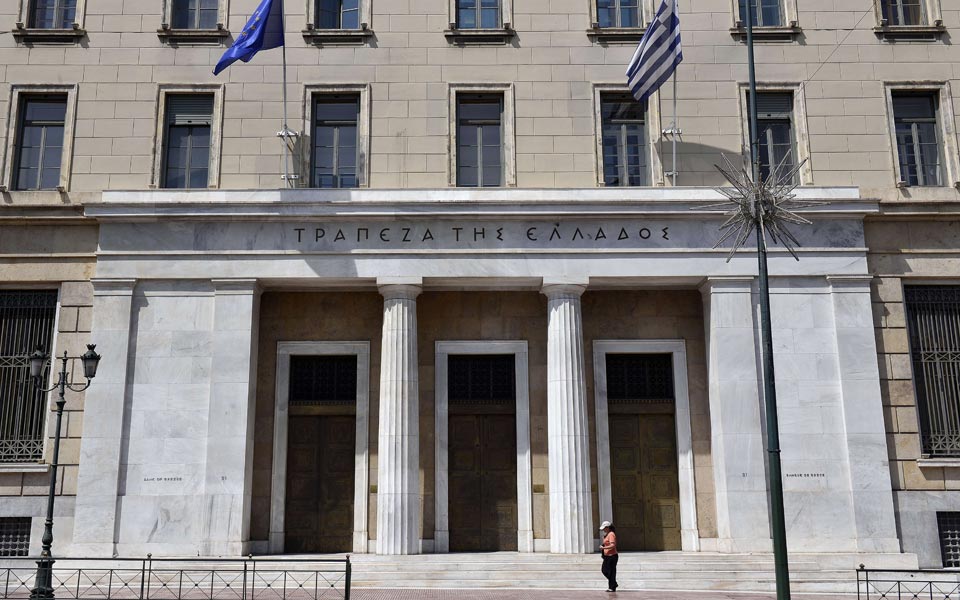Greek bank bondholders may avoid bail-in, recap fund chief says

Holders of senior bonds in Greek banks will not be bailed-in if private investors cover the lenders’ basic capital shortfalls, according to the chief executive of the country’s financial stability fund.
The European Central Bank is currently reviewing the balance sheets of Greece’s four biggest banks — National Bank of Greece SA, Eurobank Ergasias SA, Alpha Bank AE and Piraeus Bank SA. If shareholders can plug any potential holes that the inspectors identify in their baseline scenario, the senior bondholders won’t be asked to take any losses, Hellenic Financial Stability Fund CEO Aristides Xenofos told reporters in Athens on Wednesday.
The HFSF could cover additional capital shortfalls in the tests’ adverse scenario, without requiring that senior bondholders take a hit first, he said. There are about 4.7 billion euros ($5.3 billion) in outstanding senior bonds issued by Greek banks, according to data compiled by Bloomberg.
If, on the other hand, private investors aren’t in a position to contribute the funds necessary to meet minimum regulatory requirements under the baseline scenario, then senior bondholders will have to be bailed-in before the HFSF intervenes, according to Xenofos.
Greek bank shares fell 7.2 percent on Wednesday, extending a three-day losing streak. The HFSF, which is owned by the Greek state, is the four large banks’ biggest shareholder. The lenders have lost over 73 percent of their market value since Prime Minister Alexis Tsipras called a referendum on Greece’s bailout in late June. The total market capitalization of banks in the Athens Stock Exchange was just 3.84 billion euros at the close of trade on Wednesday, down from almost 29 billion euros a year ago.
Greek lawmakers need to pass legislation by the middle of October to set the ground rules under which the banks will be recapitalized and that law will include the technical details of any potential losses for senior bondholders, Xenofos said. The Greek government may need to provide more detail on the process after that so that the recapitalization process can be completed by mid-December, he said.
“If the banks’ capital needs are small, then it will be easy to attract private capital,” Xenofos said. “If they’re big, we’ll try to attract private capital anyway.”
Greek banks remained closed throughout July, as a stand off between the government of Tsipras and euro-area members triggered a run by savers, with long queues forming in front of ATMs. Having lost over 43 billion euros of deposits over the past year amid doubts over Greece’s place in the currency bloc, lenders rely on almost 90 billion euros of Emergency Liquidity Assistance extended by the central bank to stay afloat.
“Following the results of the Asset Quality Review and Stress Tests before the end of the year, the bail-in instrument will apply for senior debt bondholders whereas bail-in of depositors is excluded,” euro-area finance ministers said in a statement on Aug. 14, as they earmarked 25 billion euros for the recapitalization of the country’s battered financial system, out of a total envelope of 86 billion euros.
Xenofos expects to find out how much capital the banks need by the end of October, when the ECB is due to release the results of the stress test. Greece wants to lure funds from private investors for its lenders to minimize the burden that repairing the financial industry will put on the public debt load, he said.
Xenofos said that the HFSF will review and assess the performance of the management of Greek banks. If the Fund ends up controlling a majority stake in the lenders after this year’s recapitalization process, it could force a management change, depending on the results of its assessment.
[Bloomberg]





